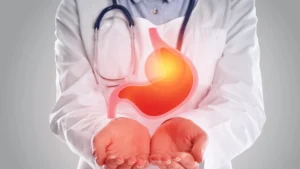Introduction
Stomach cancer, also known as gastric cancer, is a serious and potentially life-threatening condition that affects millions of people worldwide. Detecting stomach cancer in its early stages is crucial for effective treatment and improved prognosis. In this article, we will explore the importance of screening and prevention, as well as the warning signs to look out for. By being aware of these factors and taking necessary precautions, we can increase our chances of detecting stomach cancer early and potentially saving lives.

Screening
Screening for stomach cancer involves the use of specific tests to identify potential abnormalities in the stomach lining or early signs of cancer. While there is no universal screening program for stomach cancer, certain individuals may be at a higher risk and should consider regular screenings. These may include individuals with a family history of stomach cancer, a history of Helicobacter pylori infection, or those from high-risk regions. Screening methods may include upper endoscopy, where a thin tube with a camera is passed through the throat to examine the stomach, or a biopsy to collect tissue samples for further examination.
Warning Signs
Being vigilant about the warning signs of stomach cancer can significantly increase the chances of early detection. Some common symptoms may include unexplained weight loss, persistent abdominal pain or discomfort, frequent heartburn, difficulty swallowing, nausea, or blood in the stool. While these symptoms may not necessarily indicate stomach cancer, it is important to consult a healthcare professional if they persist for an extended period or become more severe. Remember, early detection can greatly improve the prognosis and increase treatment options.
Diagnosis
If stomach cancer is suspected, further diagnostic tests may be conducted to confirm the presence and extent of the disease. These may include imaging tests like CT scans or MRIs, blood tests to check for markers associated with stomach cancer, or more invasive procedures such as laparoscopy or exploratory surgery. Once a diagnosis is confirmed, the medical team will work with the patient to create an appropriate treatment plan based on the stage and characteristics of the cancer.
Outlook
The outlook for stomach cancer varies widely depending on the stage at which it is diagnosed. Unfortunately, stomach cancer often goes undetected until it has progressed to advanced stages, making treatment more challenging. However, when diagnosed early, the chances of successful treatment and long-term survival significantly increase. It is important to remember that early detection through regular screenings and awareness of warning signs are crucial in improving the outlook for stomach cancer patients.
FAQ
Q: Are there any lifestyle changes that can help prevent stomach cancer?
A: While there is no guaranteed way to prevent stomach cancer, adopting a healthy lifestyle can reduce the risk. This includes maintaining a balanced diet rich in fruits and vegetables, avoiding processed and fatty foods, quitting smoking, limiting alcohol consumption, and treating any Helicobacter pylori infections promptly.
Q: Is it necessary to get screened for stomach cancer if I have no risk factors or symptoms?
A: In general, routine screening for stomach cancer is not recommended for individuals without risk factors or symptoms. However, it is essential to consult your healthcare provider, who can assess your individual risk factors and provide personalized advice on whether screening is necessary.
Q: Can stomach cancer be cured?
A: The treatment and prognosis of stomach cancer depend on various factors, including the stage at diagnosis, the patient’s overall health, and the aggressiveness of the cancer. While complete cure may not always be possible, early detection and appropriate treatment can significantly improve outcomes and enhance the quality of life for stomach cancer patients.
Summary
Detecting stomach cancer early is crucial for effective treatment and improved prognosis. Although there is no universal screening program, individuals with risk factors should consider regular screenings. Being aware of the warning signs, such as unexplained weight loss or persistent abdominal pain, can help prompt medical evaluation. Upon suspicion of stomach cancer, further diagnostic tests will be conducted to confirm the diagnosis, and appropriate treatment plans will be developed. Remember, early detection can greatly improve the outlook for stomach cancer patients, emphasizing the importance of awareness, screenings, and timely medical intervention.